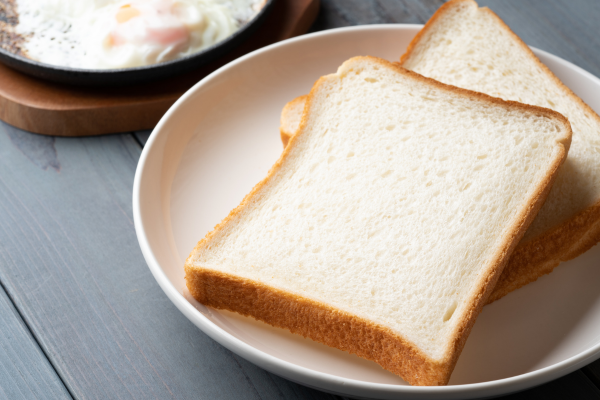Understanding the contents of your pantry can significantly influence your health and well-being. This post delves into the common yet potentially harmful foods that often find their way into our households. From the fizzy allure of sodas to the hidden dangers of hydrogenated vegetable oils, this exploration aims to shed light on why certain items should be kept out of your kitchen. Making informed choices about what to stock in your pantry can lead to a healthier lifestyle, and this guide is here to help you take those steps.
Contents
Soda

Soda, often seen as a refreshing beverage, is a source of concern due to its high sugar content. Consumption of soda is closely linked to obesity, diabetes, and a slew of other health complications. The excessive sweetness, often masked by the carbonation and flavors, can lead to a rapid increase in blood sugar levels, fostering a cycle of cravings and energy crashes. Marketing strategies cleverly position these drinks as harmless or even essential for hydration, but the reality is far from the truth.
Even diet sodas, which are marketed as a healthier alternative, carry their own set of health risks. They are packed with artificial sweeteners like aspartame, sucralose, and saccharin, which have been the subject of health debates for years. Some studies suggest that these substitutes may still encourage sugar cravings and possibly lead to weight gain. Healthier alternatives like water, herbal teas, or infused water with fresh fruits offer hydration without compromising health.
Hydrogenated Vegetable Oils

Hydrogenated vegetable oils are a staple in many processed foods, offering a longer shelf life and a certain texture or taste. However, the trans fats found in these oils are a major health hazard. They are known to increase bad cholesterol (LDL) levels while decreasing good cholesterol (HDL), leading to a higher risk of heart disease and stroke. Often disguised in food labels as ‘partially hydrogenated oils,’ these fats are sneakier than one might think.
Reading labels meticulously is crucial to avoid these hidden dangers. It’s essential to understand that not all fats are the enemy – the body needs healthy fats for various functions. Switching to healthier fats like olive oil, coconut oil, or avocado oil can provide the necessary fats without the health risks associated with trans fats. These natural oils offer a range of health benefits, including anti-inflammatory properties and essential fatty acids.
Processed Meats

Processed meats, such as sausages, bacon, and deli slices, are convenient and commonly consumed, yet they pose significant health risks. The preservatives, particularly nitrates, used in these meats are associated with an increased risk of serious health issues, including certain types of cancer and heart disease. Moreover, the high levels of salt and fat in processed meats can lead to hypertension and contribute to cardiovascular problems. While these meats are often prized for their flavor and long shelf life, the health implications cannot be overlooked.
Choosing healthier protein sources is crucial for maintaining a balanced diet. Incorporating lean meats, such as chicken or turkey, and plant-based proteins like beans, lentils, and tofu, can provide essential nutrients without the harmful effects of processed meats. These alternatives not only offer a variety of health benefits but also contribute to a more diverse and enjoyable diet. Making the switch to healthier protein options can significantly reduce the risk of chronic diseases and improve overall health.
White Bread And Refined Flours

White bread and products made from refined flours are ubiquitous in many diets, yet they offer little nutritional value. These foods are stripped of their natural fibers and nutrients during processing, leading to a product that can rapidly spike blood sugar levels. This not only contributes to weight gain but also increases the risk of developing insulin resistance and type 2 diabetes. Moreover, the lack of fiber in these products can lead to digestive issues and does not provide the feeling of fullness that helps control appetite.
In contrast, whole grain products and those made from unrefined flours are rich in nutrients and fiber. These healthier alternatives aid in maintaining a healthy digestive system and provide a steady release of energy, preventing the blood sugar spikes associated with refined products. Incorporating whole grains into the diet is an easy switch that offers numerous health benefits, including a reduced risk of heart disease, stroke, and certain types of cancer.
Sugary Cereal

Breakfast cereals, particularly those high in sugar, are a popular choice for a quick morning meal but are far from the healthiest option. These cereals often contain more sugar per serving than many desserts, contributing to obesity, especially in children. The enticing packaging and marketing towards younger audiences mask the reality of these cereals being a poor start to the day, nutritionally speaking. The high sugar content can lead to energy crashes and hinder cognitive function, which is particularly detrimental for children in school.
Healthier breakfast options can be just as convenient and far more beneficial. Options like oatmeal, yogurt with fresh fruit, or whole grain toast with nut butter provide essential nutrients, fiber, and protein. These alternatives not only offer a balanced start to the day but also help in maintaining steady energy levels and concentration. Encouraging a shift towards these healthier options can have a lasting positive impact on dietary habits and overall health.
Microwave Popcorn

Microwave popcorn is a popular snack, but it comes with health concerns that many are unaware of. The artificial butter flavoring contains diacetyl, a chemical linked to respiratory issues, while the bags are often lined with perfluorooctanoic acid (PFOA), which has been associated with several health problems, including cancer. These chemicals, combined with the typically high salt and fat content, make microwave popcorn a less-than-ideal snack choice.
Opting for healthier snacking options is easy and beneficial. Air-popping popcorn at home offers the same convenience without the harmful chemicals. Moreover, snacking on nuts, seeds, or fresh fruits can provide essential nutrients and health benefits, making them a superior choice for anyone looking to indulge in a snack without compromising their health.
Artificial Sweeteners

Artificial sweeteners are commonly used as a sugar substitute, with the misconception that they are a healthier option. However, these sweeteners can still lead to weight gain, cravings, and even disrupt the body’s ability to regulate blood sugar. Despite being calorie-free, artificial sweeteners can trick the body into thinking it’s consuming sugar, leading to similar metabolic responses as when consuming actual sugar.
Natural sweetening methods, such as using honey, maple syrup, or agave nectar, offer a better alternative. Consuming fruits and whole foods to satisfy sweet cravings is another healthy approach. These natural sources of sweetness not only provide a range of nutrients but also come with fewer health risks compared to artificial sweeteners. Making a conscious decision to reduce reliance on artificial sweeteners can have a positive impact on long-term health.
The Bottom Line
Choosing what to keep in the pantry is a decision that significantly affects health and well-being. This guide has highlighted several common foods that, despite their popularity, can have detrimental effects on health. Making informed decisions about diet, opting for whole and unprocessed foods, and being aware of the hidden dangers in seemingly innocent products can lead to a healthier lifestyle. Small changes in the pantry can lead to significant improvements in overall health, paving the way for a more conscious and health-focused approach to eating.


